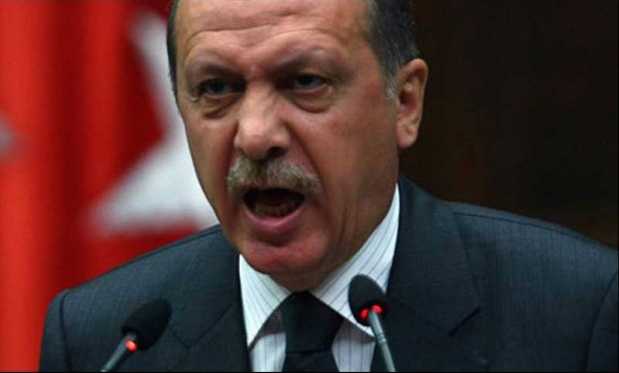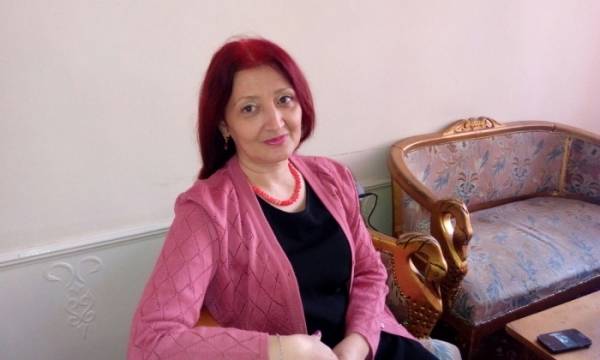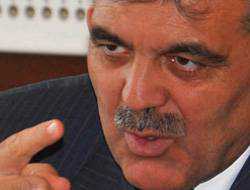
It is a tale
Told by an idiot, full of sound and fury,
Signifying nothing.
MACBETH, William Shakespeare
A month ago I wrote that Turkey’s relentless prime minister, Recep Tayyip Erdoğan, was either heading for a psychotic break or an incident or statement so damaging to the nation that he would be forced to resign. If incessant lying in the face of overwhelming, documented truth, if using incredibly inflammatory, divisive language in public discourse, if impugning the motives of all who disagree with his bestial domestic policy towards peaceful protesters including nations, international organizations, NATO, the European Union, and non-governmental organizations to name but a few, if repeated gassing and beating of unarmed, peaceful protesters, if sanctioning and encouraging police (and personal private thug) violence on the level of Pinochet’s Chile and Hitler’s Third Reich, if state-supported murder is glorified as self-defense, if he, the nominal leader of Turkey, stands shamed and defamed before the eyes of the world (except for America) then he (or even a relatively normal egomaniac) would have left long ago. But he’s still here. And for the right reasons, I was wrong. My excuse? This prime minister is not a normal egomaniac, nor is he a normal or even abnormal megalomaniac. He’s a dead man talking. And talking. And talking. And talking. Gibbering nonsense allegations and conspiracy rubbish. Sex and beer in the mosques. Foreign meddlers. Interest rate lobby. Drunks. Looters. Coup-plotters. Vandals. Plunderers. The Jews did it. His language, his thoughts, like a cancer consume him. His reality? Zero.
He and his stooges still target people in the government-controlled media; public defaming is a specialty of this government. Erdoğan’s strong-arm street goons, in the worst tradition of Adolph Hitler, now assist his uniformed cop-goons in attacking peaceful protesters. And he is still talking. But that is all. He has lost control of the nation. Even the Kurds have joined the resistance. The very thought of Tayyip is lustily booed everywhere, from graduation ceremonies to race tracks. Athletic teams celebrate victories with Atatürk flags. Actors act out. Singers sing out. There is a frenzy of resistance music, art and caricatures. Agitprop Turkish-style fills the air and it is wonderful to behold. The brilliance of these kids is blinding. Normally rabidly partisan football fans have united in one team. Call it RESISTANCE fired by their joint rabid disgust with Erdoğan. Slogans are everywhere: “Everywhere Taksim, everywhere resistance,” “We are Mustafa Kemal’s soldiers.” They carry Turkish flags emblazoned with his image. “Tayyip resign!” they shout. But Tayyip resists, too. But nothing works for Erdoğan anymore. He cannot move about in public. His appearance at a public arena requires the government to purchase all tickets to redistribute to staunch party members. No booing of Tayyip is allowed! Verboten! Yasak!
Dead Man Talking must deeply believe that he and the shameless American ambassador, one Francis Ricciardone, indeed share “democratic values.” That, and last week’s express air delivery from the ever-generous America of 43 tons of pepper gas put a little pep in his step. FORTY-THREE TONS! The more to gas and blind you with my dear Turkish children. And the American ambassador calls this “having a conversation within your Turkish family.” Yes, a conversation, like this perhaps…Would you like to catch a gas canister in your eye socket today, my dear? No? Well how about a little brain damage instead courtesy of that model of democratic values, the USA? No? Well then, how about some lunch? A few rubber bullets to chew on, perhaps? Or a friendly whack on the ear by a cop’s made-in-the-West club? Or a police boot in your mouth to aid digestion? Still no? Goodness, gracious, you protesters are sure hard to please.
Such is the twisted mind of the American ambassador, a man who lives by spewing honeyed words and putrid thoughts. He is America’s talking marionette. He is the source, the taproot of Dead Man Talking. He feeds him. An earlier not-so-nice American ambassador, Eric Edelman, blew the whistle on the prime minister and his eight Swiss bank accounts. Dead Man Walking brushed it off as nonsense saying he got his wealth from gifts at his son’s wedding. Nice son. Nice father. Isn’t love grand?
Dead Man Talking. His delusions consume him. They will not leave him. Nor can he leave us. Nor can he tell the truth, to himself, to anyone. His delusions and the darkness, the sneaky darkness are his best friends. For him, everything is at stake. He thought he had it made, this prime minister. His friends, toadies all, never told him bad news. But it is in them, these flatterers, that he will begin to see his end. He will see it in their eyes. One evening he will see the streets again crowded with Turkish youth. He knows them well. They’re the “drunks and plunders” who laughingly embrace his slanderous words. They are the future. And the prime minister’s toadies know it. And the prime minister should ask them this simple question: Am I still the future? And then watch their eyelids flutter and their eyeballs search for the door.
The prime minister’s private police force has too many targets in too many cities. Too many peacefully assembled targets that he can now attack only at great peril to his already vanishing prestige. Anyway, America and Brazil and Israel cannot manufacture enough gas to stay the flood of people willing to die for a new future. They, the people of Turkey, are disgusted by the hijacked, exploited Islam that suppresses human freedom and replaces true spirituality with money, money, and more money. The young people that the prime minister so recklessly defames, these kids that appear on the television screens, are saying that they want a real democracy. Not this Turkish one that ruthlessly plunders the environment and enriches an equally ruthless business-political oligarchy. They want a new system, one yet unknown. One that Dead Man Walking and his ilk all over the world have not one iota of awareness.
The kids want one that cedes REAL power to the REAL people, all of them. One that controls the overwhelming greed inherent in this dying capitalistic system. One that remedies the materialistic and intellectual corruption that propels nations to kill and plunder. One that destroys forever imperialism in all its formulations that has always ravaged the planet. One that truly emancipates the people from the yoke of the religious mongering tyrants and their effete, cunning western backers. One that enables all people to clearly distinguish (and separate) their spiritual beliefs from their politics. No more conniving CIA Factbooks disclosing country-by-country religious breakdowns. No more religious markers on identification cards or any official or governmental form. Spirituality is from the heart, not from a piece of paper.
It’s Hitler-time in the Berlin bunker. And the dimensions of the full horror visited upon long-suffering Turkey over the past ten years will soon be revealed. What will Dead Man Talking shout about then? Will anyone listen? His toadies? His media? His police? His army? His rich wedding guests? What kind of a tale will he tell? What is the sound of no hands clapping? What is the fury?
Cem Ryan, Ph.D.
Istanbul
1 July 2013





 Message is first high-level expression of sympathy; Netanyahu had refrained from contacting Turkish PM after the bombings near the Syrian border.
Message is first high-level expression of sympathy; Netanyahu had refrained from contacting Turkish PM after the bombings near the Syrian border.